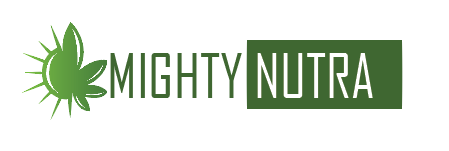
Cancer is a disease, characterized by uncontrolled cell growth. There are many different forms of cancer that appear to be affected by curcumin supplements.
Curcumin, the main ingredient in the curry spice turmeric, is a naturally occurring antioxidant known as a polyphenol. Polyphenols are found in plants that have anti-inflammatory and other protective properties.
Curcumin and Cancer
Curcumin has been studied as a beneficial herb in cancer treatment and has been found to affect cancer growth and development.
Studies have shown that it can:
-
contribute to the death of cancerous cells
-
reduce angiogenesis (growth of new blood vessels in tumors)
-
reduce metastasis (spread of cancer)
Some studies suggest that curcumin in turmeric has a variety of health benefits, including fighting cancer cells. Some lab studies have found it might work against lung, breast, prostate, and colon cancers. Others suggest that curcumin might help chemotherapy work better.
A study on people with colorectal cancer found it may help slow the disease’s progression. Another found taking it daily may lower the chance of cancer in people who are at high risk of it.
Whether high-dose curcumin — preferably with an absorption enhancer like piperine — can help treat cancer in humans has yet to be studied properly. However, there is evidence that it may prevent cancer from occurring in the first place, especially cancers of the digestive system like colorectal cancer.
In a 30-day study in 44 men with lesions in the colon that sometimes turn cancerous, 4 grams of curcumin per day reduced the number of lesions by 40%.
Curcumin leads to several changes on the molecular level that may help prevent and perhaps even treat cancer.
Preliminary findings from one show it can help lower levels of a protein that is a key prostate cancer sign. Other studies have tested whether it can help chemotherapy work better in people with advanced pancreatic or colorectal cancers. Results aren't available for the pancreatic cancer study, but the colorectal cancer study showed some possible benefits that may warrant further study.
Different studies are looking at other possible benefits. One found an oral rinse of turmeric may help with the mouth sores that are common in people having radiotherapy for head and neck cancers.
Another found taking turmeric didn’t help with skin problems and pain in people undergoing radiation for breast cancer.
Inflammation
As inflammation is linked to tumor growth, anti-inflammatory compounds such as curcumin may play a role in treating and preventing a variety of cancer types, including colorectal, pancreatic, prostate, breast, and gastric cancers.
In fact, research in mice suggests that curcumin may help slow the spread of tumor cells and may even prevent tumors from forming in the first place. It may do this in several ways, including disrupting the formation of cancerous cells at various stages in the cell cycle, interfering with cell signaling pathways, and even causing those cancerous cells to die.
Depression
Some people with cancer may experience depression before, during, or after cancer treatment. Depression is a type of mood disorder. It may make it harder to cope with cancer treatment. It may also make it harder for you to make choices about your care.
As a result, identifying and treating depression are important parts of cancer treatment.
Depression is also linked to reduced levels of BDNF and a shrinking hippocampus, a brain area with a role in learning and memory. Curcumin can help boost BDNF levels, potentially reversing some of these changes.
There’s also some evidence that curcumin can boost the brain neurotransmitters serotonin and dopamine. According to several studies, curcumin is as effective as an antidepressant.
A study in 60 people with depression showed that curcumin was as effective as Prozac in alleviating symptoms of the condition, leading researchers to suggest that curcumin may be a safe and effective treatment for major depressive disorder.

Effective Curcumin Usage
Turmeric is safe to use in cooking. Your body doesn’t absorb curcumin well, so most of it probably goes right through you.
What is important to keep in mind when considering incorporating more turmeric into your diet is that it can be tough to reap the benefits through food alone. Though curcumin is the main active ingredient in turmeric, its naturally-occurring content is not all that high—around 3% by weight.
To get the full effect, or if you already are at risk for heart-related conditions, you may want to consider taking an extract or supplement that contains a significantly higher amount of curcumin. Find out the most potent anti-inflammatory solution curcumin solution down below:
How to integrate curcumin into your diet regime
☑ Rapid Potent Pain Relief
☑ Superior Anti-Inflammatory
☑ Support Heart And Joint Health
Mighty Curcumin goes above and beyond by containing curcumin that is standardized to 95% tetra-hydro-curcuminoids, the most active form of curcumin, for increased effectiveness. It’s a safe, effective, non-addictive pain relief to quickly reduce pain due to inflammation.




